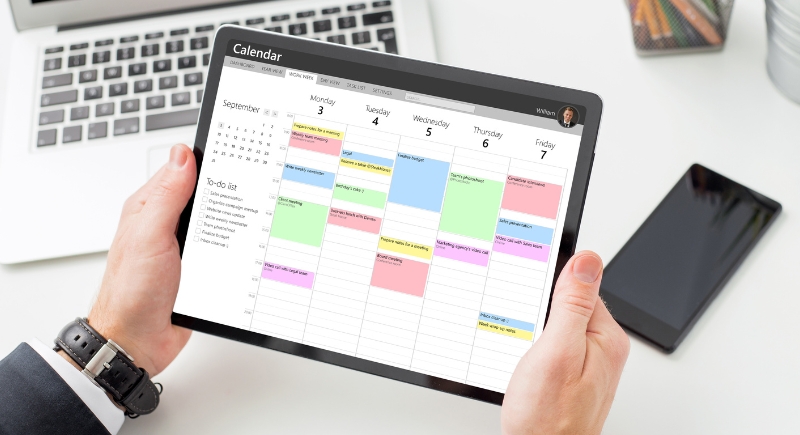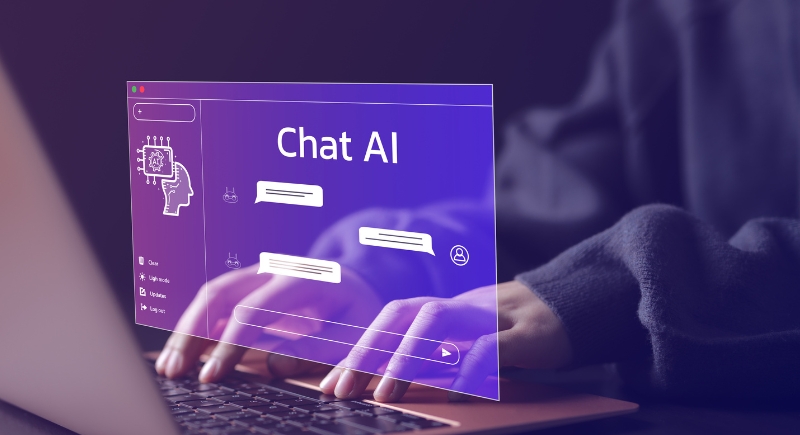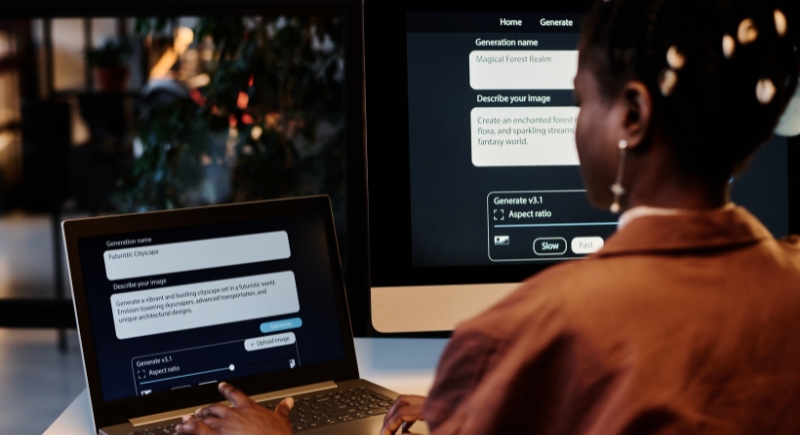15 Ways You Can Use AI to Make Your Life More Future-Ready
According to research, as of early 2024, only about 16% of U.S. workers say they use AI tools regularly on the job, while a majority have little to no exposure. Despite the hype, practical adoption still lags. But that gap presents an opportunity.
Those who learn to apply AI thoughtfully save time and sharpen skills. Here are some practical ways to start.
Automate Repetitive Daily Tasks

Credit: Canva
AI tools handle low-value jobs like sorting emails, managing calendars, or cleaning up spreadsheets without needing constant oversight. Automating these reduces the number of decisions you make each day, which lowers mental fatigue and improves focus. Apps like Zapier or Notion AI also reduce context-switching to let you stay in one workflow longer.
Build Skills That AI Can’t Replicate

Credit: Getty Images
Avoid spending all your time on skills that AI handles better. Writing generic emails, reformatting slides, or organizing notes are easy targets for automation. If you keep focusing on those tasks, your work becomes replaceable. Instead, invest time in developing communication, leadership, and interpersonal skills.
Prepare Smarter for Interviews and Presentations

Credit: pexels
Before a meeting, interview, or presentation, analyse your talking points using an AI tool. Instruct it to suggest gaps, clarify language, or point out what’s unclear. Claude and ChatGPT can simulate questions you might get.
Start With One Useful Tool and Learn It Well

Credit: pexels
Most people who give up on AI do so because they try to learn too much, too fast. Jumping between tools with no clear goal leads to frustration and confusion. Try to pick one tool that solves a real problem, like drafting emails or summarizing articles, and focus only on that.
Stay On Top of Trends

Credit: Getty Images
Companies that adopt AI early outperform slower adopters in productivity and market position. That edge often comes from knowing what’s changing before others do. Leverage AI to summarize trade journals, scan press releases, or condense research papers, which allows you to adjust your work before changes become obvious to everyone else.
Practice Better and Direct Questions

Credit: Getty Images
If you ask a digital assistant, “Write something about the latest fashion trends,” you’ll get a vague, unhelpful response. But if you input, “Write a 100-word summary of leather jacket trends for teenagers,” the result will be clearer and more usable. Practicing these kinds of prompts teaches you to think precisely.
Understand How AI Affects Your Industry

Credit: Canva
Industries don’t adopt AI at the same pace. Some, like finance and logistics, began integrating machine learning tools over a decade ago. In others, adoption is just starting. If you ignore these changes, you risk becoming disconnected from the way your field actually operates.
Test Ideas Quickly Without a Big Investment

Credit: Canva
For those who struggle to get started, AI makes the first step easier. Are you planning a family trip or organizing a school fundraiser? It can draft a sample itinerary or give you a checklist. As a result, you can turn your scattered thoughts into something workable that makes it easier to focus, edit, and proceed.
Support Language Learning

Credit: 89stocker
Learning a new language takes time, and it’s easy to lose momentum with inconsistent practice. It’s possible to stay on track with AI, which can help you with vocabulary quizzes, pronunciation feedback, and quick grammar explanations. Feel free to engage in short conversations and request translations. This on-demand support builds fluency little by little.
Ensure Efficient Personal Organization

Credit: Africa Images
If you don’t have a system in place, daily planning can drain your focus before the work even begins. You end up reacting to tasks as they come, and in that rush, forget priorities or waste time deciding what to do next. In such cases, you can turn to Motion or Reclaim to organize your schedule and suggest realistic time blocks.
Improve Decision-Making with Input

Credit: Getty Images
While AI cannot tell you what to do, it can assist you in running a cost-benefit analysis. After all, big decisions typically benefit from a second opinion. Feed the tool your current data and goal, then request risks, comparisons, or blind spots. Treat the output as a filter, rather than a verdict, to find potential consequences you may have ignored initially.
Simplify Meal Planning and Cooking

Credit: Base Image
Planning meals becomes one more thing to manage amidst work, errands, and everything in between, and doing it all yourself usually means rushed decisions or skipped dinners. AI can lighten the load with its recipe suggestions, substitutions, and prep timelines. Some tools even build shopping lists based on your goals.
Strengthen Emotional Awareness in Communication

Credit: corelens
When writing something sensitive—like performance feedback or a message to express your condolences—AI can help you test tone before hitting send. Though this doesn’t replace emotional judgment, it gives you a gut check. Over time, you’ll learn how your words land and get better at balancing directness with respect, especially in situations where emotions run high.
Catch Biases in Content or Strategy

Credit: Getty Images
Before you send out a report or launch a campaign, run your draft through an AI tool. Sometimes it will flag words or phrases you’d miss—stuff that sounds fine to you but might rub others the wrong way. Even a quick scan can pick up language that leaves people out or leans too much on old assumptions.
Streamline The Job Application Process

Credit: Canva
It’s natural to feel overwhelmed when applying for a job. The processes involved such as preparing resumes, writing cover letters, and trying to stand out can feel like a full-time task. This is where AI comes in to format your resume, improve phrasing, or tailor descriptions to match a job posting.